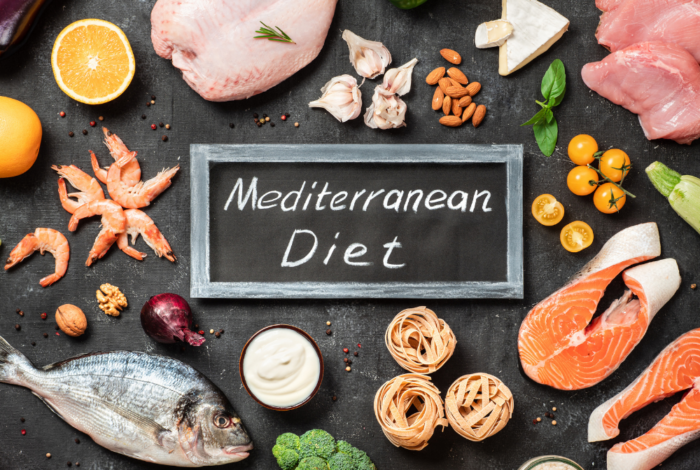High blood pressure remains one of the main causes for premature morbidity and mortality worldwide, despite the important progress in medicinal treatment. Increased arterial pressure has serious consequences for cardiovascular and renal health, increasing the risk for stroke, myocardial infarction, heart failure and kidney damage. That said, current guidelines for treating high blood pressure stress the importance of changing eating habits as an indispensable strategy supplementary to medicinal treatment.
One of the most effective dietary strategies is adopting the Mediterranean diet, which has been recognised for its advantages in reducing blood pressure and promoting cardiovascular health. According to recent clinical studies, the Mediterranean diet has been shown to be effective in reducing systolic arterial pressure. In one study focusing on elderly subjects, adopting the Mediterranean diet led to a drop in systolic arterial pressure of 5.5 mmHg.[1] This decrease is associated with a significant reduction in risk of death from a stroke or cardiovascular diseases. In fact, recent data from the Greek epidemiological study ATTICA after 20 years of monitoring shows that stronger adherence to the Greek Mediterranean diet is associated with a significant decrease in the risk of developing high blood pressure. Those who consistently followed the Mediterranean diet had 47% lower 20-year risk of hypertension, compared to those with lower adherence.[2] Study results overall reaffirm and stress that even slight changes in eating habits towards the Mediterranean diet could have significant benefits for one’s health.
One of the key mechanisms through which the Mediterranean diet has a positive effect on blood pressure is the increase in potassium intake. Potassium is a critical nutrient that plays a significant role in maintaining the balance of fluids in the body and regulating blood pressure. The foods at the core of the Mediterranean diet, such as fruits, vegetables, whole grains and legumes, are rich in potassium which helps to remove excess sodium (an element of salt) from the body and reduce hypertension.
Additionally, eating oily fish, which are a key component of traditional Greek diet, supplies our body with omega-3 fatty acids which have been recognised for their beneficial effects on cardiovascular health. Fish like salmon, herring and sardines are excellent sources of these polyunsaturated fatty acids, which have been shown to reduce blood pressure by decreasing inflammation and improving the function of blood vessels.
Overall, adopting the Mediterranean diet is an effective strategy for lowering blood pressure and improving cardiovascular health. Through a balanced diet that includes nutrient-rich foods, the Mediterranean diet offers a sustainable approach to mitigating cardiovascular risk and promoting overall health and well-being.
BIBLIOGRAPHY
[1] Jennings, A., Berendsen, A. M., de Groot, L. C. P. G. M., Feskens, E. J. M., Brzozowska, A., Sicinska, E., … Cassidy, A. Mediterranean-style diet improves systolic blood pressure and arterial stiffness in older adults. Hypertension 2019 73(3): 578–586. https://doi.org/10.1161/hypertensionaha.118.12259.
[2] Georgoulis Μ, Damigou Ε, Derdelakou Ε, Kosti R.Ι., Chrysohoou C, Barkas F, Kravvariti E, Tsioufis C, Pitsavos C, Liberopoulos E, Sfikakis P.P. & Panagiotakos D.B. Adherence to the Mediterranean diet and 20-year incidence of hypertension: the ATTICA prospective epidemiological study (2002–2022). Eur J Clin Nutr 2024 78(7):630-638. doi: 10.1038/s41430-024-01440-w.










